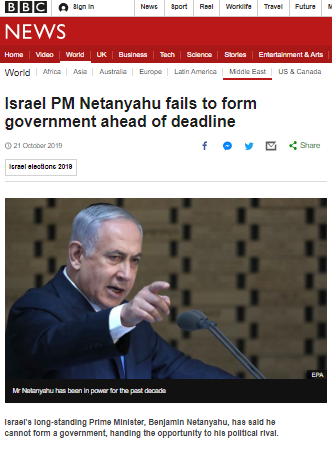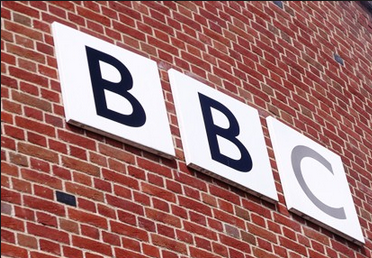Some of the groundwork for the prevalent themes used in the BBC’s later coverage of the news that the P5+1 had agreed the terms of an interim agreement with Iran was already laid down nearly two weeks prior to that agreement in a November 12th article titled “US challenge to convince Mid-East allies over Iran” by the BBC’s State Department correspondent Kim Ghattas which appeared on the BBC News website’s US & Canada page, as well as in the ‘Features & Analysis’ section of its Middle East page.
In that article, Ghattas used specific language in order to herd readers towards viewing some of the regional responses to the then still unsigned interim deal as reactions based purely on emotions – rather than on any concrete scientific or strategic factors with which audiences might need to familiarise themselves in order to fully understand the issue.
Ghattas opened: [all emphasis added]
“Negotiations in Geneva with Iran may have failed to produce an interim deal over the weekend, but Israel and Gulf countries are still alarmed about the potential for a nuclear deal with Tehran, finding themselves in the unusual position of being partners in angst.”
Of course any “alarm” was actually related to the specific terms of the deal – not to the prospect of a deal in itself – and we later saw Ghattas promoting that same misleading theme once again in a filmed report.
She went on to wave aside the concerns of one country in the region, making no mention of the significance of its physical proximity to Iran or of the Shia – Sunni enmities at work.
“Saudi Arabia has long been worried about a deal between its traditional protector and regional rival, mainly due to its own insecurities.”
Then it was Israel’s turn to have concerns frivolously dismissed, with Ghattas apparently not interested in detailing for readers the practicalities of exactly how a country should “reach out” to multiple entities committed to its destruction:
“Surrounded by violent upheavals in a changing region, Israel’s instincts have been to retrench rather to reach out to traditional foes.”
She continued:
“During a meeting in Jerusalem on Wednesday, Mr Kerry found himself ambushed in front of the cameras by the Israeli Prime Minister, Benjamin Netanyahu.
Mr Netanyahu launched into a diatribe about the Palestinians, accusing them of incitement and of creating artificial crises and he called on Mr Kerry to set them straight. […]
Livid, looking like he had not slept all night, the Israeli prime minister said the West was getting “a bad deal, a very, very bad deal”, while Iran was getting the ”deal of the century” because “they got everything and paid nothing”. “
Later, Ghattas’ cod psychology and crystal ball gazing skills were extended to cover the subject of talks between Israel and the PLO.
“Mr Kerry has tried to convince Mr Netanyahu that a deal with Iran is good for Israel’s security, as is peace with the Palestinians. But Mr Netanyahu’s anger at the Iran negotiations means he will be even less eager on the peace talk front.”
Then it was back to the Gulf:
“In the Gulf too, monarchies are having a hard time coming to terms with the possibility of an Iran deal. […]
There is little that Gulf monarchies can do to torpedo the ongoing negotiations with Iran, but they will continue to hyperventilate in public about the prospects and lobby against them through other parties, like Congress.”
Despite the BBC’s obligation to build a global understanding of international issues, Ghattas made no effort to explain to her readers the very real issues surrounding the actual terms of the deal which cause Israel, Saudi Arabia and others to have serious doubts about its long-term efficacy in containing Iran’s progress towards the acquisition of nuclear weapons.
Instead, she reduced the entire issue to the level of a soap opera, projecting emotional reactions onto states, engaging in two-penny psychology of their leaders and herding her readers into simplistically viewing any country less than enthusiastic about what the BBC has consistently promoted as a ‘best thing since sliced bread’ deal as emotion-driven hysterical nay-sayers spoiling the rest of the world’s party.





